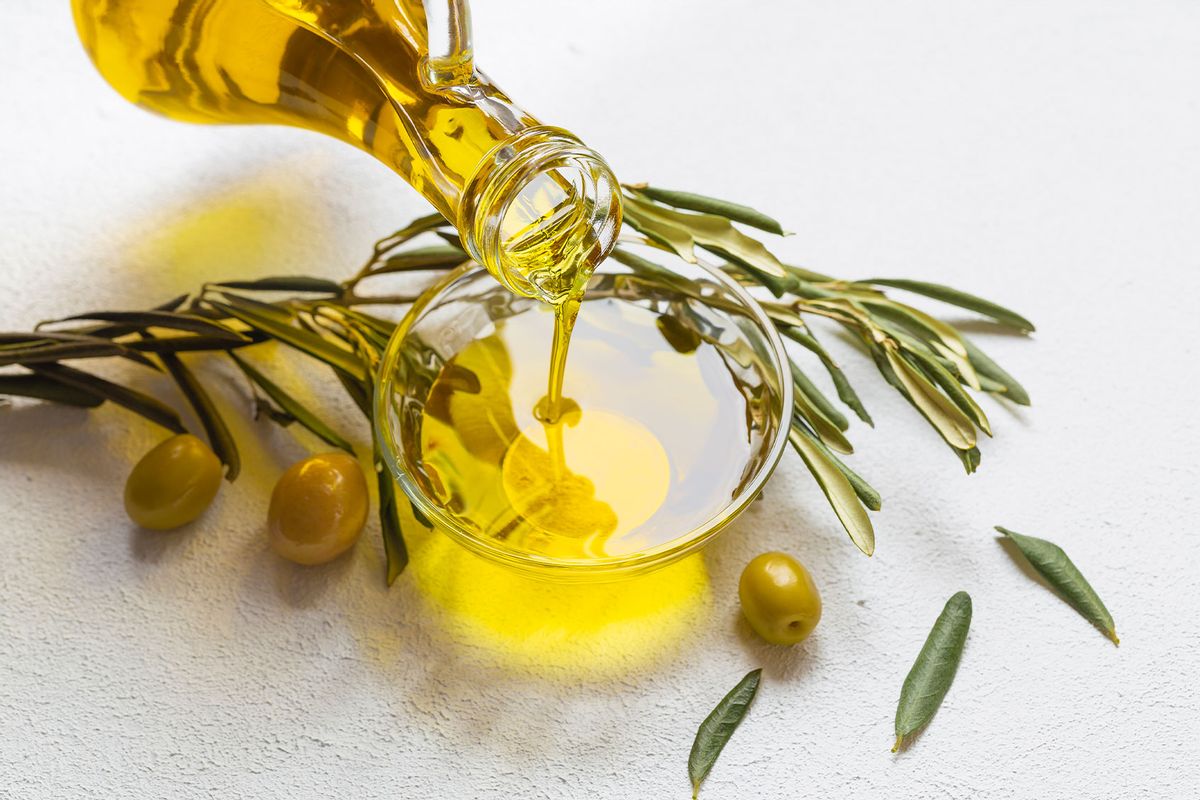Extreme heat is now affecting one of your cooking must-haves: Olive oil

Olive oil is, for all intents and purposes, probably one of the biggest staples in most kitchens worldwide.
Unfortunately, though, you might need to stock up soon: Extreme heat, especially throughout Europe, may soon wreak havoc on your olive oil. Don’t take it for granted.
In an aptly titled Grist story called “Climate change is coming for your olive oil, too,” Max Graham writes that the oil has seen raising prices recently due to “heatflation,” which he defines as “when scorching temperatures harm crops and push food prices up.” Due to droughts and high heat throughout Europe, especially Spain, olive oil may become a sought after fat in the near future.
Per Graham Spanish olive oil production has already fallen by a half. This, of course, will also undoubtedly impact the price of your favorite olives oils, as well as their availability; Spain is the number one provider of the world’s olive oil.
“The price of olive oil has surged to an all-time high, double a year ago,” wrote Javier Blas for Bloomberg. “In 2019, before the pandemic, the ratio was less than five times.”
Even Californian olive orchards are struggling, primarily due to excessive, unprecedented rains, though less than 3% of the olive oil consumed in the United States is actually made in California.
That said, this is also unfortunately by no means a new development. As Samantha Larson wrote for Epicurious, in 2018, some California olive harvests were so low that companies using “olives grown in Argentina, Chile, Portugal to blend with their California production.” This was not looked favorably upon by many customers.
What’s even more concerning is that fact that in 2019, the olive production of the year prior was less-than-ideal — but in 2023, it’s fallen even further.
In March 2021, Elazar Sontag wrote in Eater that Italian olive production was down.
“Olive trees are alternate bearing, with a plentiful harvest year usually followed by a smaller one. Farmers know to anticipate this cycle, but now the successful harvests are sometimes almost as meager as the predictably small ones,” Sontag wrote.
So, while the trees themselves are often resilient, that’s not always the case for the fruit — or oil — itself. Whether due to extreme heat, drought, frosts, excessive rains or invasive insects, olives have a slew of adversaries, if you will. As CNN reported, The International Olive Council has “stopped short of calling the situation a crisis, but a spokesperson said ‘we are facing a complex situation as a consequence of climate change.'”
Want more great food writing and recipes? Subscribe to Salon Food’s newsletter, The Bite.
As the title of Mitski’s upcoming album “The Land Is Inhospitable and So Are We” predicts, it is thought that many traditionally lush, olive-producing places — such as Northern Italy — may not be able to produce such olives in upcoming years, with their fertile grounds soon becoming too darn hot for the fruit to flourish.
As Giuseppe Morisani and Skyler Mapes, co-founders of Calabrian olive oil company EXAU, told Sontag: “People are like, ‘I want to protect the environment.’ And I’m like, ‘You should plant an olive tree.”
Read more
about this topic

